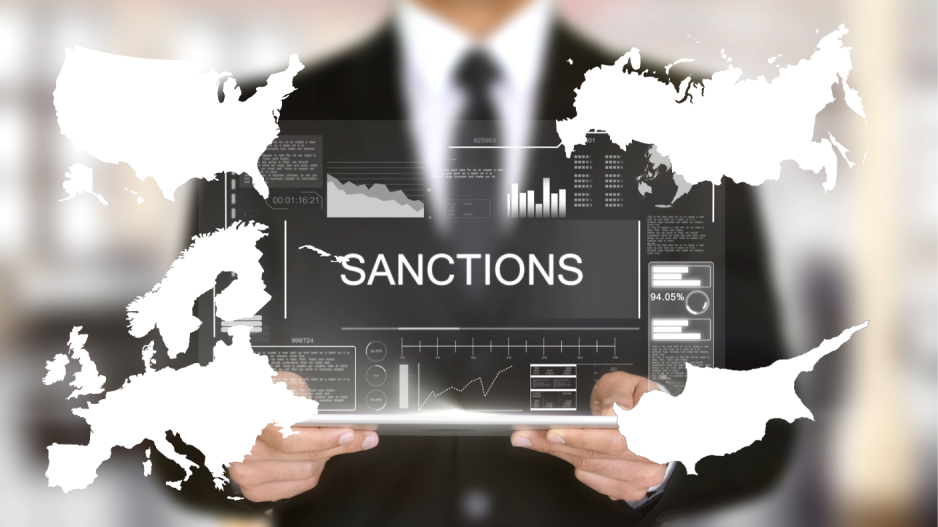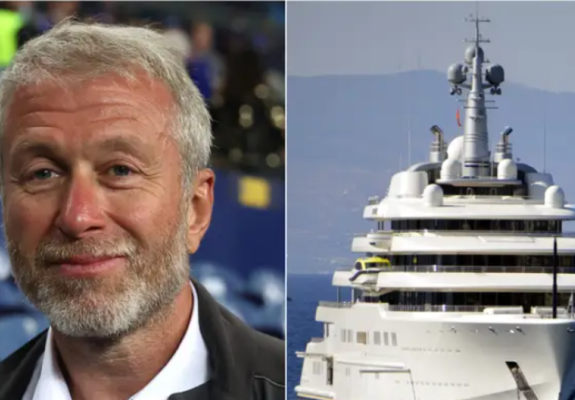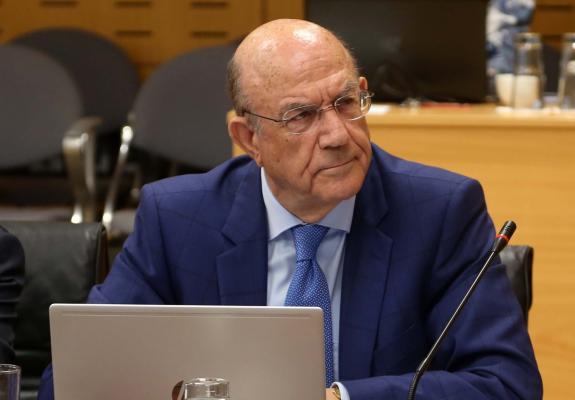Sanctions Explained: A Deep Dive into the Effectiveness and Consequences with a Spotlight on Cyprus
Sanctions. There is no buzzword or anything in fact, too big for our precious, little island. Recently we have been introduced to sanctions without even a hint of warning; “Kalimera, Kalispera, Kalinikta!” (good morning, good afternoon, good night). I can’t describe it any better.
Once applied, they can destroy an economy or entity in the blink of an eye. But who has the authority to impose them, and what are the intended results?
Let’s take it step by step, what are sanctions?
Sanction as a word, has a legal origin. It means “authoritative approval” referring to a means of enforcing a law. In simple words, sanctions are restrictive measures, or penalties let’s say, enforced upon governments, non-state entities i.e., organizations, and individuals. Therefore, by its nature, it is an aggressive measure. Governments and international bodies, such as the United Nations, impose sanctions, aiming to stop law violations or specific behavior, either from a country, entity, or individual. It is a strong measure to avoid going to war. And it makes sense. However, there are no global guidelines or rules, it is a political decision.
Sanctions have various forms, namely diplomatic, trade, economic, asset freezes, arms embargoes, capital restraints, travel bans, and the list goes on. Lately, economic sanctions are the most popular and supposedly have the strongest effect. Economic sanctions usually come in the form of restricting trade and financial transactions or limiting access to goods and services. For example, instead of a military engagement, the US uses economic sanctions to force Russia into withdrawing from Ukraine. In practice, the US prohibits Russia from making debt payments using foreign currency held in US banks. They have removed major Russian banks from the SWIFT network, which delays payments to Russia for its oil and gas exports. Moreover, the US is banning all Russian oil and gas imports. There are many other sanctions applied by the US, as well as the EU, however, there is no need to dig any deeper. The matter is simple, powerful countries use economic and trade measures to force Russia into stopping the illegal war on Ukraine. They try to block and strangle the Russian economy, leaving no other option to Putin but to withdraw.
A major question evolves, are sanctions against Russia effective?
Russia is still at war with Ukraine and shows no intention of stopping.
Have the imposed sanctions hurt Russia?
Russia’s GDP dropped by around 2.1% in 2022. However, the IMF predicts a growth of 0.7% in 2023. So, why are sanctions still in place? It is safe to assume that if the US and EU back down, that would mean a total loss on the political table. Also, sanctions are the only weapon before engaging in war. One can argue though, that Russian individuals and EU citizens are the ones hurting the most from sanctions. The EU faced one of its biggest energy crises in 2022 due to increased oil & gas prices followed by the ban on Russian oil & gas imports. In November 2021, Russian gas reflected 41% of EU imports, whereas in November 2022, it fell to 13%. On the other end, between January and November 2022, Liquified Natural Gas EU imports from the US grew by more than double compared to the whole of 2021.
Unfortunately sanctions, as with everything, cannot be always completely effective, or operate without consequences.
We know by experience that the current US and EU sanctions on Russia haven’t had the desired effect. So, what are the Americans doing? They stepped the game up, opposing sanctions on Russian oligarchs and related entities, aiming to apply indirect pressure on Putin. And this is how our little island gets involved.
Unfortunately sanctions, as with everything, cannot be always completely effective, or operate without consequences.
No country can tell another country what to do, at least not in the public’s eyes. A country that imposes sanctions can only apply them within its territory and jurisdiction. Therefore, the US and UK did not impose any sanctions on Cyprus. It is important to note that Cyprus has no sanctions list. According to Law no. 58 (I) of 2016, Cyprus is obligated to follow any sanctions applied by the UN and EU councils. However, in April 2023, the US and UK only included CY citizens and entities on their sanctions lists. Not the EU.
The Cyprus government has yet to impose any sanctions on the Cypriot citizens and entities who are on the US and UK lists. However, Cypriot banks did. Were they right to rush into forcing sanctions before the government did?
It depends on any other possible threat placed by the US. Never forget that sanctions are a political decision. There are no global guidelines on decision-making. It could be that the US forced the Cypriot banks to act, or they would otherwise apply sanctions to the banks themselves. It’s merely a hypothesis, but it makes sense. After all, banks want to avoid risk as much as possible. Was the Cyprus Republic put in a difficult position? Definitely. The dilemma was either to cooperate with the US or to protect, at all costs, taxpayers and the economic model. The government chose to cooperate with the mighty forces. Some may say this is the smart thing to do. Cyprus can’t risk being on the wrong side of the political table now. Not with a recently elected government that aims to push the solution of our national problem high up on global leaders’ agenda.
Cyprus has historically tight economic relations with Russia and a currently challenging process of de-attaching. If there is no extensive conflict, Cyprus, chances are, will not be negatively affected as a country. The same does not apply to the individuals and entities involved. For them, there will be long-term consequences whether they’ve done something illegal or not. And it doesn’t matter if they have done anything illegal or not. Since the decision is political, there is almost no way to defend themselves. There are no global definitions of when to apply and when to remove sanctions.
In the end, sanctions are a tool and weapon. And as with every weapon, the outcome depends on the user. A bullet can save a life, and at the same time, it can take one. For example, sanctions pursued Yugoslavia not to invade Albania in the past and also played a significant role in solving South Africa’s Apartheid regime. Andreas Demetriou, an ex-partner of KPMG Cyprus, states that “even if sanctions seem to be a cruel measure, they are an effective way to avoid magnifying events. However, one must use them with caution, as they can, very rapidly, spike political conflict that usually results in hurting innocent citizens.” It will not be a surprise if these measures from the US backfire, especially with 19 countries aiming to join the BRICS group this year. One thing is evident. What comes next will be very interesting.






